Many Africans have had enough!
Rising numbers are unwilling to accept unreliable utilities and lack of basic infrastructure.
Africans, like their global counterparts, lead busy, busy lives. And the disruptions that occur when basic services don’t work means that many are happy (as well as increasingly able) to spend on products and services that make everyday life faster and easier.
Now, they’re looking to innovative brands and entrepreneurs to step up, and start improving local services and systems. And as the continent continues to develop, this desire to engage with such brands – plugged into their localities and equipped with a broader purpose to do good – only intensifies.
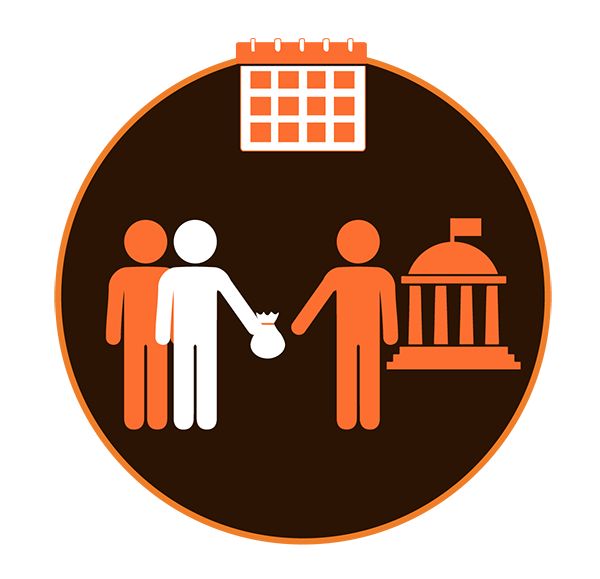
Almost one in two people in sub-Saharan Africa report having paid a bribe in the last 12 months when interacting with key public institutions and services.
The African Development Bank, May 2014
.png)
Since 2005, a net 8 million people in Africa have moved out of poverty.
The African Development Bank, May 2014
Three forces are driving UTILIT-EASERS into the mainstream in 2014:
1. Increasing dissatisfaction
Industry, government and archaic institutions just aren’t delivering.
2. Era of innovation
Startups and industry giants are finally innovating to meet consumer expectation.
3. Everyone wants in
Today, everyone aspires to best-in-class products, services and experiences.
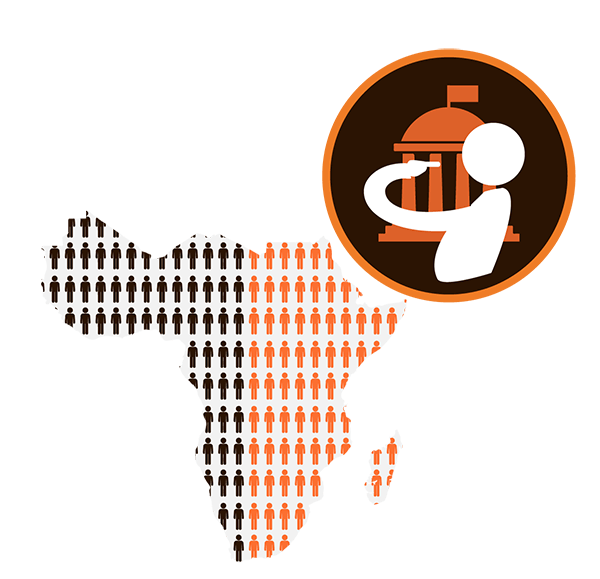
Over half of sub-Saharan Africa respondents believe that their government is largely run by big entities acting in their own best interests, instead of the public good.
The African Development Bank, May 2014
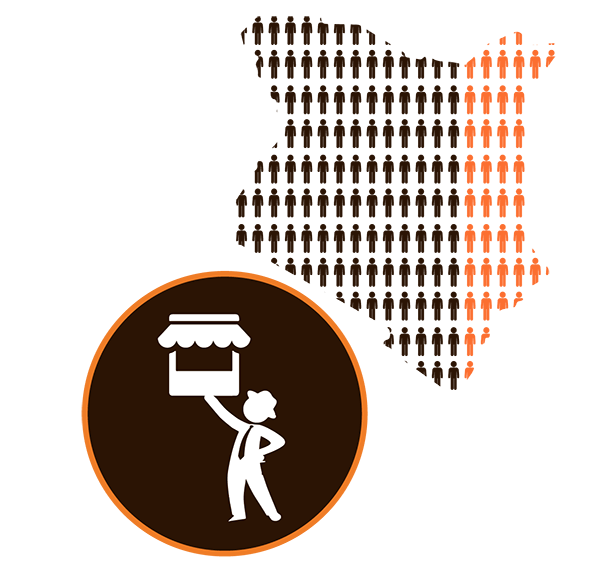
76% of Kenyans believe that becoming an entrepreneur is a desirable career choice.
Omidyar Network, April 2013
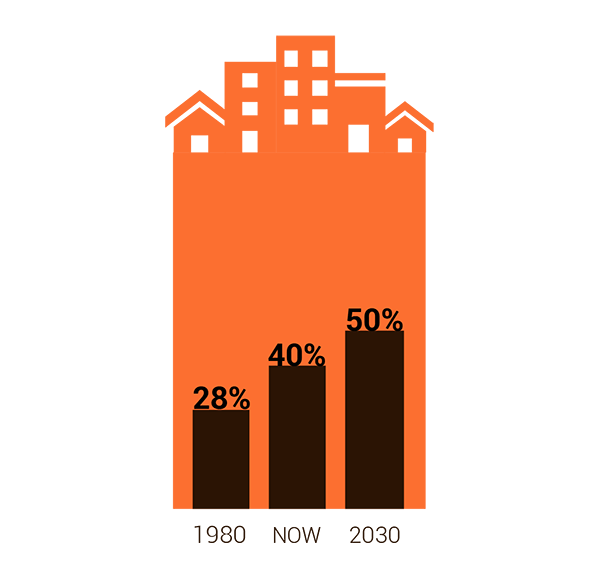
In 1980, only 28 percent of Africans lived in cities. Today, 40 percent of the continent’s one billion people do. By 2030, that share is projected to rise to 50 percent, and Africa’s top 18 cities will have a combined spending power of USD 1.3 trillion.
Mckinsey, June 2010
So let’s have a look at the savviest UTILIT-EASERS and the various ways they are serving African consumers.
UTILIT-EASERS AT HOME
Home life for consumers throughout the continent is still as challenging as it gets, with basic utilities unreliable and the regular need to resolve domestic issues, too.
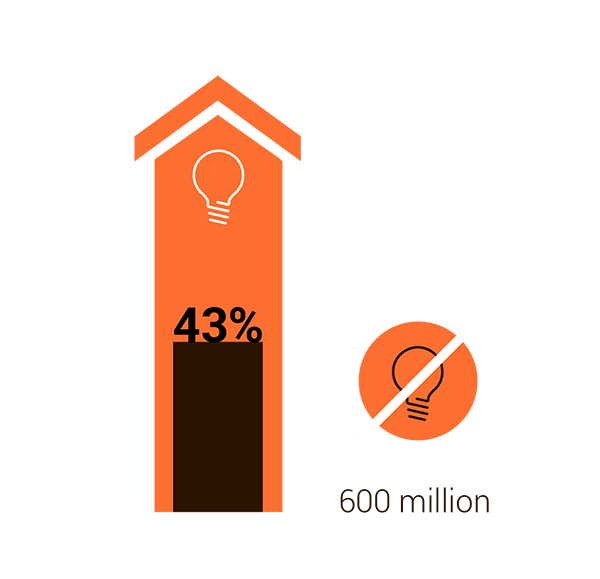
The household electrification rate in Africa stands at just 43%, leaving 600 million people without access to electricity.
The African Development Bank, May 2014
MTN Nigeria & Nova-Lumos
Mobile home power station kit provides alternative solar electricity supply
In April 2014, MTN Nigeria and Nova-Lumos – a utility provider – collaborated to provide a mobile electricity service for those not connected to the electricity grid. MTN customers can subscribe to ‘electricity-on-demand’ via their mobile phones, charging up with small payments in order to activate an indoor solar-panel kit that supplies the household with electricity.
DryBath
South African waterless showering aid for those lacking access to clean water
DryBath is a cleaning gel that allows users to bath or shower without using water. The South African germ-killing formula, first patented in 2012, has been dubbed a “precious tool” for those without access to clean water and merely requires users to scrub down in order to remove any dirt from their skin.
FOUFOUMIX
Togolese appliance quickly pounds tubers into foufou
The FOUFOUMIX device substitutes the arduous and sometimes painful task of hand pounding foufou, by hygienically producing the popular West African dish in less than 10 minutes. The domestic appliance brand is one of the finalists selected for the Prize of Innovation for Africa 2014.
M-KOPA Solar
Kenyan startup provides solar home systems via M-PESA payment plan
Asset financing company M-KOPA Solar provides solar home systems to Kenyan households off the grid via an M-PESA 12-month payment plan. In February 2014, the startup received an additional USD 20 million in funding, which will boost its current 60,000+ users to one million users nationally by 2018.
UTILIT-EASERS OUT & ABOUT
From mobile devices to traffic jams, there's a pressing need for innovations that make life less stressful, more convenient and safer.
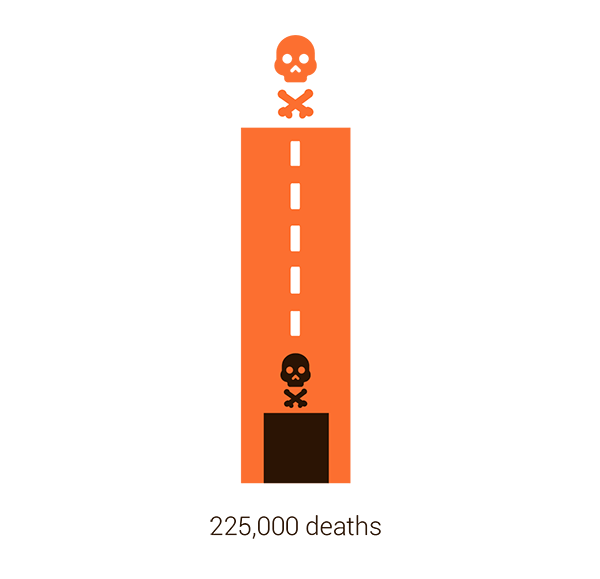
Road fatalities on the continent result in 225,000 deaths every year – about one-fifth of total fatalities from road crashes worldwide.
The African Development Bank, May 2014
CladLight
Kenyan smart-jacket reduces motorbike accidents
CladLight is a Kenyan startup founded in December 2013. The ‘smart jacket’ was created to reduce motorbike-related accidents via an embedded signal that indicates the direction the rider will turn. The jacket also contains a GPS tracker that helps locate the rider in the event of an accident.
Rlg Communications
Gambian solar-charging phone kiosks introduced in Ghana
In April 2014, Rlg Communications announced that the solar-charging stations it recently introduced in Gambia, will be replicated in Ghana. These kiosks will empower young entrepreneurs by enabling them to charge the general public to charge their mobile devices via solar power, and will also act as a sales and repair point for all Rlg products.
Traffic Butter
Nigerian traffic information app crowdsources updates
Launched in March 2014, Traffic Butter is a mobile app that provides road users with crowdsourced, up-to-date information updates on traffic jams in major Nigerian cities. The app also reports on stolen vehicles, road accidents, hazards and other road security alerts.
UTILIT-EASERS IN EDUCATION
Lack of teachers, schools, textbooks, learning resources – the list goes on: a big challenge for the continent, and a great opportunity for UTILIT-EASERS.
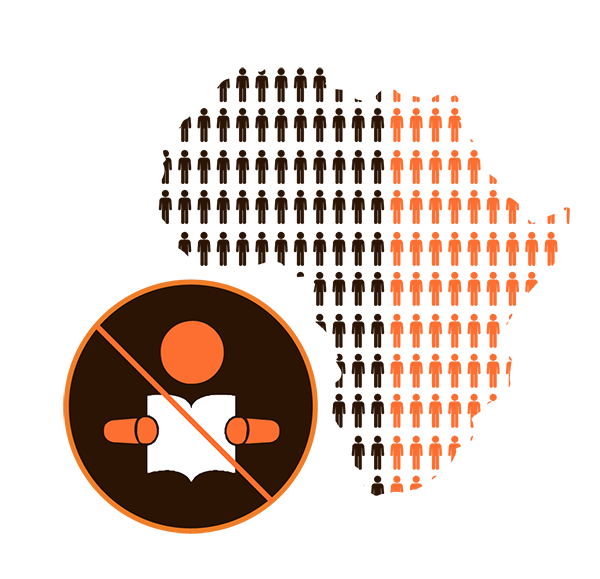
Half of all African children reach adolescence without achieving literacy or numeracy.
The African Development Bank, May 2014
Via Afrika & Breadline Africa
Upcycled shipping containers converted into digital learning centers in South Africa
In April 2014, educational publisher Via Afrika, Cape Town-based NGO Breadline Africa, and the Nelson Mandela Centre of Memory, launched the national Digital Learning Centre initiative. The project involves renovating discarded shipping containers into digitalised educational libraries for students across a number of South African schools. The upcycled containers have Android tablet devices with learning programmes, apps, e-textbooks and other educational tools embedded within them.
Obami
South African mobile tutor and student study platform
Obami Tutor is a new mobile tutoring service from South Africa’s social learning developers Obami. The service – still currently in its beta phase – aims to solve the logistical and cost-related challenges surrounding traditional tutoring in the country, and will connect mentors & qualified teachers with students via mobile phone.
Beni American University
Nigeria's first private online university
Beni American University (BAU) is Nigeria’s first private online university. The platform was originally designed in 2012 for those constrained by time, location, other demands and responsibilities. BAU encourages students to access their online classes at any time, from any location, and on any device.
Qurio
South African online tool simplifies student assessment process
Launched by EDGE Campus in January 2014, Qurio is a free mobile and web academic assessment platform for teachers in Africa. The tool hopes to compliment the traditional pen and paper based forms of student assessment by automating the process, thus freeing up time and money, for more vital tasks currently lacking in the African education system.
UTILIT-EASERS FOR WORK & PLAY
Tools and services that improve work efficiency and enhance leisure time will forever be in demand.
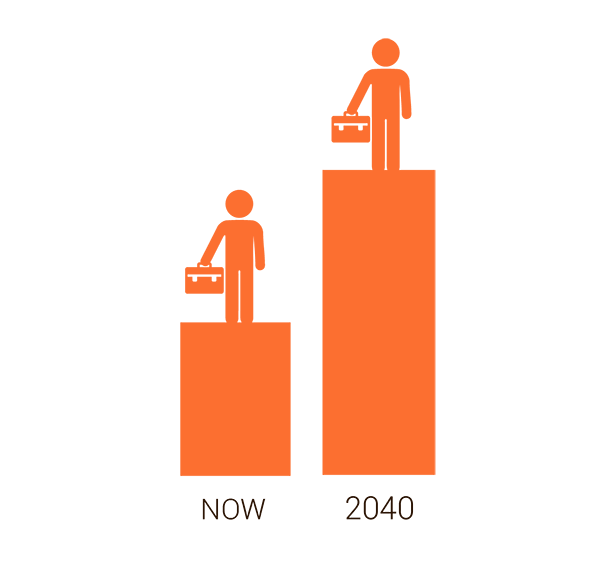
Africa’s current working population of 600 million is set to double by 2040, overtaking both China’s and India’s.
The African Development Bank, May 2014
Duma Works
Kenyan website assists job-hunters
Duma Works is a Kenyan platform that allows potential employers to discover suitable applicants via their online profiles and listed skill-sets. Duma Works also has an SMS-based platform, meaning that even basic mobile phone users can join the network. The startup won a USD 100,000 grant from the Rockefeller Foundation in November 2013.
Keepod
Low-cost 'operating-system-on-a-stick' first tested in Nairobi
After a successful crowdfunding campaign in March 2014, the Keepod, an ‘operating-system-on-a-stick’ that revives discarded and outdated PCs into functioning ones, is being tested in Nairobi’s Mathare district. The project aims to provide low-cost computing access to the half a million inhabitants of the district.
MallforAfrica
Shopping platform connects global e-tailers with Nigerians
MallforAfrica connects international sellers with Nigerian shoppers. The online platform offers products from large e-tailers and handles delivery, security and payment issues on behalf of both parties. In 2014, MallforAfrica announced plans to expand into other African nations.
UTILIT-EASERS IN MONEY MATTERS
With the plethora of cash-only, informal markets and unbanked citizens, Africans still can't get enough of UTILIT-EASERS that tap into mobile banking, cashless transacting and microloaning.
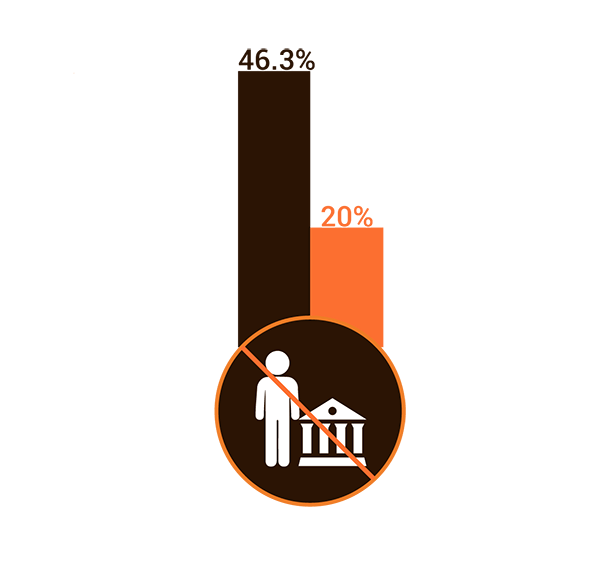
The Nigerian Financial Inclusion Strategy (NFIS) aims to reduce the percentage of financially excluded adults in Nigeria from 46.3% to 20% by 2020.
Central Bank of Nigeria, July 2013
Nomanini
South African POS device announces expansion into Mozambique
Nomanini is an electronic device that distributes mobile airtime, takes payments for prepaid utilities, and facilitates mobile money transactions in informal markets. In April 2014, the South African company publicly declared expansion into Mozambique, in order to cater to the unbanked majority there.
Lendico
Online marketplace allows investors to directly fund the loans of South Africans
Lendico is a loan market place that announced the launch of its South African arm in April 2014. As an alternative to traditional banking, the platform directly connect borrowers with investors, whilst also facilitating all facets of the loans process.
VeriFone & Teasy Mobile
Collaboration sees the expansion of mobile money services in Nigeria
VeriFone Mobile Money announced in March 2014, that it had been selected by Nigeria’s Teasy Mobile to broaden and localize mobile money services across the country. In a drive to encourage cashless transactions, VeriFone will deploy its contactless POS terminals, whilst also integrating its telecommunications, mobile wallet and banking solutions within the retail industry.
UTILIT-EASERS IN SICKNESS & IN HEALTH
Wellness is a fundamental human desire. Across the continent, the race continues to close the gaps between this desire and available solutions.
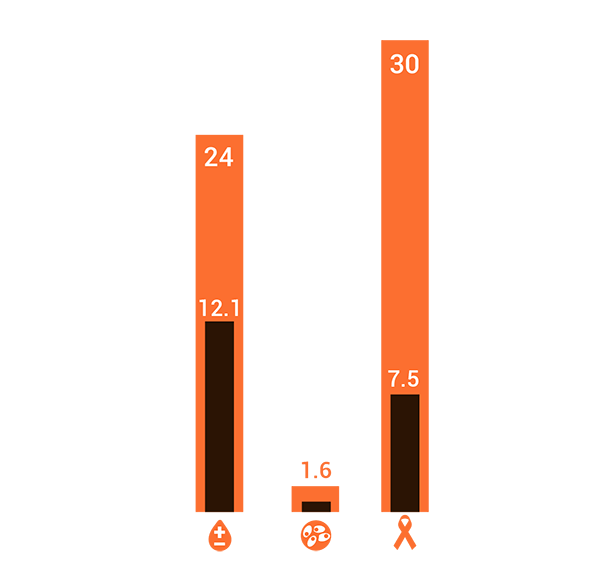
Africans with diabetes: 12.1 million patients today, 24 million by 2030. Africans with cancer: 681,000 new cases in 2008, 1.6 million new cases a year by 2030. Africans needing antiretroviral treatment (for HIV and AIDS): 7.5 million today, 30 million by 2022.
World Health Organization, August 2013
Wireless Reach
Kenyan based technology intervention programme for HIV patients
The Wireless Reach initiative is a collaboration between Qualcomm Inc., the Provincial Medical Office of Nairobi and the Communications Commission of Kenya, with a goal of using technology to help in managing HIV patient care. The technology intervention program utilizes 3G connectivity to better equip antiretroviral (ART) treatment centres.
Hello Doctor
'Doctor in your pocket' app provides health information to South Africans
The Hello Doctor app, which announced its 18-month African-wide roll out in November 2013, allows users to receive medical advice and health information from registered health professionals via their mobile phone. In conjunction with MTN, the ‘doctor in your pocket’ service also includes chat and group discussion tools within the app, and the organization televises a weekly “Hello Doctor” show for additional advice.
WinSenga
Ugandan startup launches mobile phone-based fetal heart rate momnitor
In April 2014, WinSenga became one of the 10 finalists at the Innovation Prize for Africa. The Ugandan medical startup produces a low-cost, diagnosis kit that captures fetal heart beat sounds and sends relevant antenatal information to the mother via SMS.
Unjani Clinics
South African health organization launches 'clinics-in-a-box'
Unjani Clinics are mobile medical centers owned and operated by professional local nurses, and are made from repurposed shipping containers. These affordable private ‘clinics-in-a-box’ have been erected in a variety of locations across South Africa, to provide primary health care and medical advice to underserved communities.








